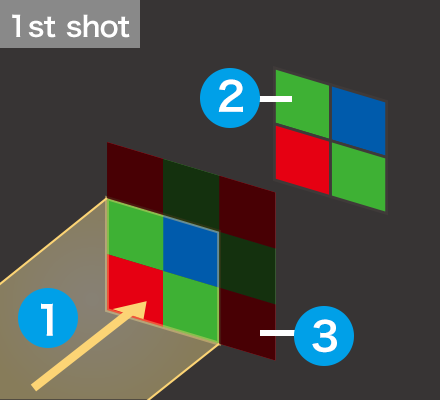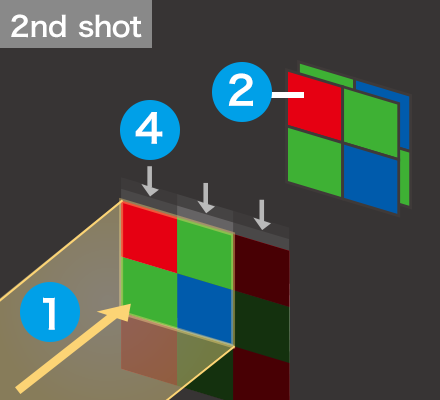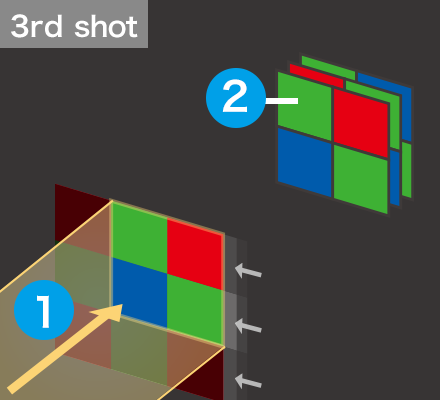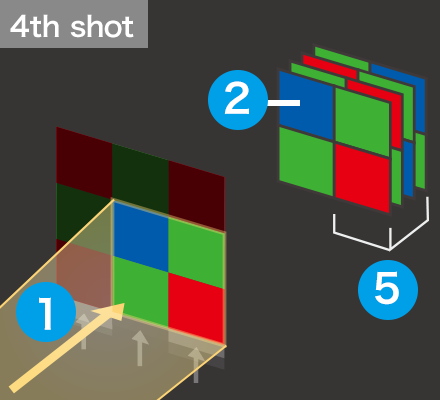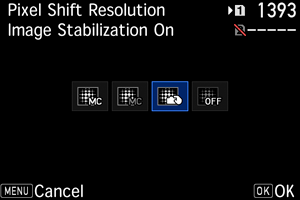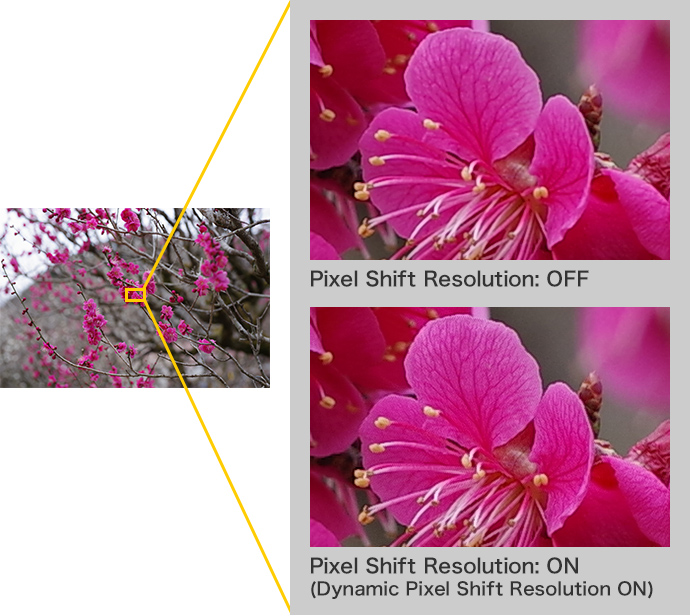The advanced Pixel Shift Resolution System II for super-high-resolution images

HD PENTAX-D FA 28-105mmF3.5-5.6ED DC WR
Aperture: F11 ; Shutter speed: 1/120 sec. ; Exposure
compensation: +0.7EV ; ISO sensitivity: 100 ; White balance: Daylight ;
Custom image: Vibrant ; Pixel Shift Resolution: On (Motion Correction
function: On)
A PENTAX technology to produce high-quality images beyond the power of total pixels
PENTAX's Pixel Shift Resolution System II* is the super-solution
technology which realizes image resolving power and color reproduction
far better than that of the conventional Bayer system. By taking
advantage of the camera's SR II mechanism, it captures four images of
the same scene by slightly shifting the image sensor for each image,
obtaining all RGB color data and luminance data from each pixel, then
synthesizing them into a single, super-high-resolution composite image.
It not only improves image resolving power, but also prevents the
generation of false color, reduces high-sensitivity noise, and greatly
improves image quality.
■ Pixel Shift Resolution System conceptual diagram
- 1Light
- 2Color information obtained
- 3CMOS image sensor receiver
- 4Motion of sensor
- 5Each pixel obtains color and brightness information of every RGB

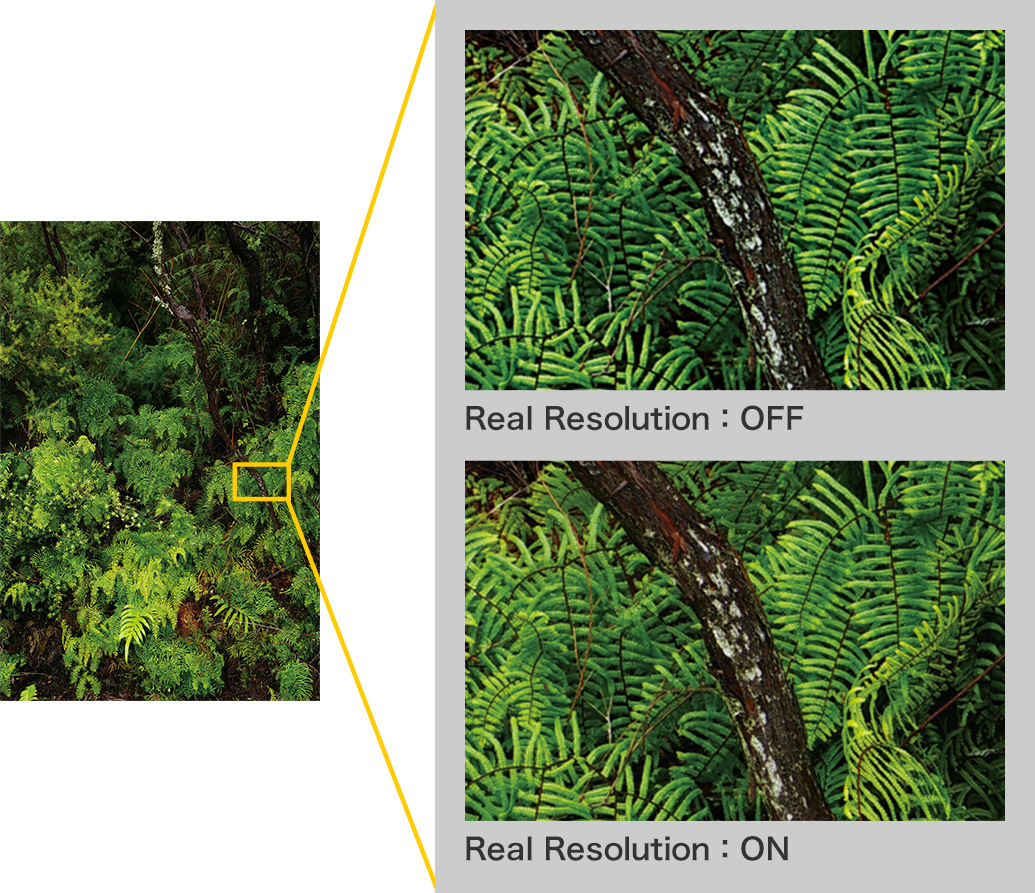
- * When using this system, the user is
advised to stabilize the camera firmly on a tripod during shooting, and
set the drive mode to self-timer or remote control, or use the mirror
lock-up function.
- * The desired effect may not be obtained when the subject is on the move or camera shake occurs.
RAW-format filing compatibility
The images captured by the Pixel Shift Resolution System can be
saved as RAW-format files. You can develop these files within the camera
body while adjusting various parameters or turning the Pixel Shift
Resolution effect on and off to create the desired image.
Motion Correction function
An effective tool in outdoor shooting
When shooting an image with the Pixel Shift Resolution System,
you can select the Motion Correction function. When this function is
activated, the camera automatically detects the amount of subject motion
during continuous shooting and minimizes negative effects during the
synthesis process.*
- * Movement may not be sufficiently
corrected when the subject is moving in certain directions and/or
patterns. This function does not guarantee that the movement will be
properly corrected for all subjects.



